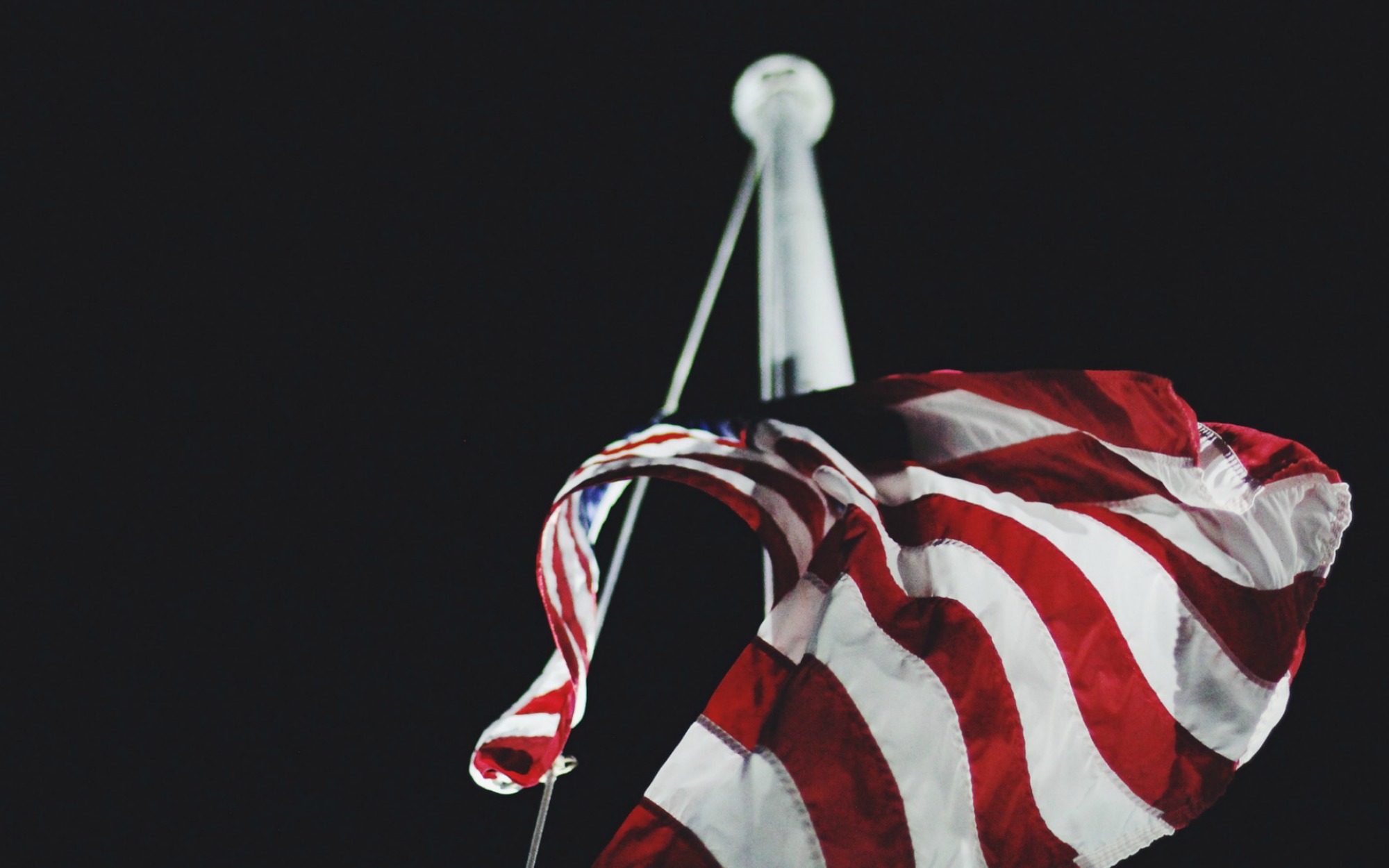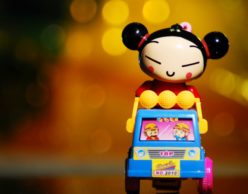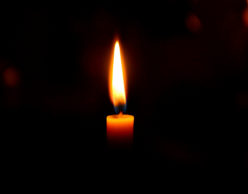The Day The World Changed

We’ve been shaken to our core, family, but we haven’t been broken. We refuse to be broken. The fight goes on — by telling our stories, by making ourselves heard, and by building. We will start today by reflecting. Our British-Burkinabé-American Mash-Up Naima Sakande is the creator and host of Third Culture, a podcast for people who are from everywhere and belong nowhere. She shares with us the lessons she learned after surviving Brexit as a Brit who voted Stay. The most important: Reject cynicism.
We will do our damn best.
No doubt about it, 2016 has sucked. From the Zika outbreak and more deaths of unarmed Black men and women at the hands of the police, to losing Prince and Alan Rickman to Leonard Cohen and Janet Reno, it’s been a fat bundle of disappointment. But none more sharp for me than the resounding message that is booming loud and clear across the United Kingdom and the United States.
It appears that the world that people like me — a Black woman, a multi-cultural Mash-Up, a heavily left-leaning idealist — thought we lived in, in fact doesn’t exist. From Brexit in the U.K. to Trump’s election in the U.S., people like me have been proven a minority not only in body, but also in mind. And I have found it heartbreaking.

November 9, 2016 brought back the plummeting sensation of waking up on June 24, 2016. When the Brexit vote happened, I was in a small B&B in Oxford in the middle of the British countryside, preparing for a wedding. My uncle was marrying his partner after having been with him for more than 24 years, and I had woken up painfully early that morning to cast my vote for Britain to stay in the European Union.
My whole family was on a high — here we were, about to celebrate a momentous day for two people we adore and whose love was about to be recognized in the eyes of the law as equal. What brighter optimism could we have for the future of our country, of our freedoms, when we could celebrate such an occasion so joyously and openly? It seemed impossible that the next day, the world would change.
After I voted, I banished the nagging doubts in the back of my mind about the divisive campaign that the Leave side had run, the images depicting floods of refugees storming our green lands, the lies about immigrants and fear about our economy. I rejected my misgivings that the Remain campaign had been lackluster and full of scaremongering. I told myself, if all else fails, the status quo will hold. The British aren’t famous for upset or rebellion. I went to bed calm, safe in the assumption that I knew my people, I knew my country, I was in the undeniable right and this vote would go my way.
So when I woke up at 5 a.m. to my phone buzzing with anxious and devastated messages, I didn’t believe it. Blearily, I turned on the TV to catch the announcement. Britain was leaving the E.U. I felt sucker punched. It was as if layers of my identity were being stripped from me. Previously, I had walked the world believing that most of the faces I looked into reflected my values and my pride in Britain as a multicultural, inclusive and diverse society. And I was wrong.
My immediate instinct was rage. I called them idiots, bigots, racists.
My immediate instinct was rage. I wanted to find a Leave voter and scream in their face: “How could you do this to us? To me?!” In my mind, I called them idiots, bigots, racists, an uneducated and misguided mass leading the country off the cliff and into a morass of hatred and despair. I questioned democracy. Who can trust these people with the right to vote when they make such dumb decisions? I hunted my Facebook feed for a stray Leave supporter. I questioned my family on which way they had voted. I texted my friends to confirm they had made the same choice as me.
And I found no one to blame, no person to unleash my anger onto. That made me pause. How did I not know a single person who voted Leave?
When I woke up on November 9th in London, a familiar dread set in. My phone screen started blinking with tiny, furious messages. In disbelief and resignation I watched the votes stack up until, yet again, the unthinkable happened. Donald Trump won the election. My stomach clenched and rolled. But I was surprised by the wave of calm that came over me later that day. I have been here before. I have had months to prepare for this moment.
Scrolling through my newsfeeds, I saw the same thing as I discovered in June. I couldn’t find a single Trump supporter in my network. The outpouring of grief, disbelief and rage I did find, brought me right back to how I felt the morning Brexit was announced.
The unpleasant truth: I live in a carefully curated bubble. I am out of touch with a majority that feels disaffected, disenfranchised and ignored. I am ashamed of the things I thought and said about people I have no contact with, no understanding of, and was not talking to. I am afraid of the unknown and it took me a while after Brexit to realize: this isolation is the first step on the path to bigotry.
And it is a long road back. I have yet to have a reasoned conversation with someone who voted for Brexit. My bubble is so complete, it’s been hard to find anyone to talk to. I’ll be honest, I’m afraid of the conversation. I am still angry and hurt and disbelieving. But small steps: I recently had a conversation with my cousin, who told me guiltily that he had voted Conservative in the most recent election. I almost jumped down his throat. You’re the reason the referendum on Brexit even happened!
But something held me back. Instead, I asked questions. I listened. And I heard the voice of someone I love, who had experiences that were different than mine, speak reasonably about a decision that felt honest and true to him. It was humbling.
Don’t get me wrong. La lucha sigue.
I want to be clear. My willingness to listen does not change my conviction that the decision Britain made was fundamentally wrong — that it will set us back a generation and has opened the floodgates to the permissibility of hate speech and dangerous public discourse. It does not change my conviction that Donald Trump is a horrible choice for President — that he will damage the reputation and standing of the USA internationally and will not represent the needs of minorities or any marginalized community.
What my shame and humility gives me is a toolkit for change. I am no longer willing to accept ‘shock’ in defeats like this. I am no longer willing to accept an unknown enemy, an ideology that I disagree with but that I can’t put a face to or a human heart behind. I don’t want to be scared of the unknown — I want to understand it.
Don’t get me wrong. La lucha sigue. But the only way to move forwards is to exchange, to engage, to humanize. We must be able to talk to each other, to understand each other’s concerns, to engage in radical empathy with one another. Not to scream ourselves hoarse from the trenches we have dug.
To all you dear Mash-Ups who did not vote for the world you are in today, don’t let the fire you feel scorch you. Bundle it into a ball and hurl it at the problems you wish to tackle. Stay open, listen, respect, disagree — fervently, passionately but do not close off and let stereotypes guide you. That is how we got to where we are today.
As a leftist and an idealist, I believe the world I want to live in is possible and will exist. And I will fight to make it so. And in the fight, I will not allow rage and hatred to turn me into the very thing I fear the most.
Because we all need it, here are Naima’s tips on how to listen across the political divide.
Remember Mash-Ups: You are not alone. Let us know how you’re feeling.
If you like this, try these:
How To Talk To Your Mixed Race Kids About Race





